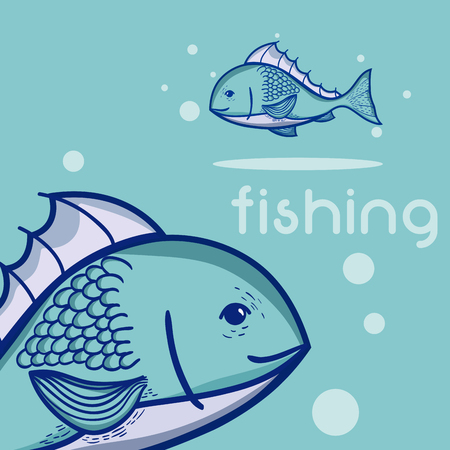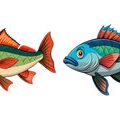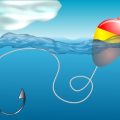Understanding the Fishing Seasons in the English Channel
If you’re planning to book a charter boat for fishing in the English Channel, getting to grips with the local fishing seasons is a crucial first step. The Channel’s unique mix of tidal flows and temperature changes means that both species availability and weather conditions can vary dramatically throughout the year. Spring welcomes early bass and pollack runs as the waters begin to warm, while summer is prime time for mackerel, bream, and smooth-hound, with longer daylight hours allowing for extended sessions at sea. Autumn is synonymous with cod and whiting returning closer to shore, making it a favourite season among experienced UK anglers aiming for larger catches before winter sets in. Winter conditions can be harsh, with unpredictable storms and rough seas, but hardy souls can still find rewarding fishing for flatfish and late-season cod if they pick their days wisely. Understanding these seasonal shifts not only maximises your chances of a productive trip but also helps you prepare for the weather – waterproofs are essential kit regardless of month, and always check local forecasts before heading out. By timing your charter booking to coincide with peak species activity and favourable weather windows, you’ll set yourself up for a classic British angling experience on the Channel.
Choosing the Right Charter Boat and Skipper
Booking a charter boat for fishing in the English Channel is not just about picking the first vessel you find online. The choice of both the boat and the skipper can make or break your day out on the water. It’s crucial to prioritise reputable charter providers, ensuring that your experience is not only enjoyable but also safe and professionally managed.
How to Select Reputable Charter Providers
When evaluating potential charter companies, start by checking their reviews and testimonials on British angling forums and local community groups. Seek recommendations from fellow anglers or local tackle shops—word of mouth remains a powerful tool in UK fishing circles. Confirm that the operator is fully licensed and insured, meeting all Maritime and Coastguard Agency (MCA) regulations.
| Criteria | What to Look For |
|---|---|
| Licensing & Insurance | MCA certification, public liability insurance |
| Vessel Safety | Regular maintenance, up-to-date safety equipment |
| Reputation | Positive reviews on UK platforms, industry accreditations |
| Local Knowledge | Experience operating specifically in the English Channel |
What Makes a Good Skipper?
The skipper is your guide, mentor, and safety officer all rolled into one. A top-notch skipper will possess an intimate understanding of the Channel’s tides, fish migration patterns, and weather peculiarities—a must when conditions can change rapidly off the South Coast. Don’t hesitate to ask about their qualifications: RYA Yachtmaster Offshore or similar credentials are standard among professional UK skippers.
| Skipper Qualities | Why It Matters |
|---|---|
| RYA Qualifications | Demonstrates professional training and seamanship |
| Local Experience | Keen awareness of Channel’s unique challenges and hotspots |
| Communication Skills | Keeps you informed, instructs clearly on safety and tactics |
| Customer Focused Approach | Makes your trip enjoyable whether you’re a novice or seasoned angler |
Understanding Credentials Around the Channel
The English Channel demands respect. All vessels must comply with MCA coding, which ensures boats are fit for offshore use. Skippers should have valid commercial endorsements and up-to-date first aid certificates. Before booking, request evidence of these credentials if they aren’t displayed publicly—legitimate operators will be happy to provide them.

3. Essential Gear and What’s Provided Onboard
When booking a charter boat for fishing in the English Channel, it’s crucial to understand what kit you’ll need to bring yourself and what is typically supplied by the skipper. Most reputable charters in the UK provide fundamental tackle, including rods, reels, and basic terminal gear as part of your package. However, anglers with specific preferences or targeting particular species may wish to bring their own tried-and-tested equipment for optimal results.
What You Should Bring
Your personal essentials should include warm, waterproof clothing—conditions on the Channel can change rapidly, even in summer. Non-slip boots are a must for safety on deck. Don’t forget seasickness tablets if you’re prone, as well as sun protection: hats, sunglasses (preferably polarised), and sun cream. A small rucksack for your lunch, snacks, water, and any personal items is also advisable.
Specialist Tackle and Accessories
If you have a favourite rod or reel suited to local species such as bass, cod, or pollack, it’s worth bringing these along. Consider packable lures or baits known to work well in UK waters—ragworm and mackerel strip are popular choices. Many British anglers also carry a filleting knife (in a secure sheath) and a fish measure to comply with minimum landing sizes set by UK regulations.
What’s Typically Supplied Onboard
Most English Channel charter boats supply lifejackets or buoyancy aids as standard; some may also provide waterproofs upon request. Basic bait is usually included, but specialist or live baits may incur an extra charge—check this when booking. The crew will generally have first aid kits and emergency gear covered.
Regulations and Local Knowledge
Be aware that UK maritime law requires all anglers to respect catch limits and minimum size rules; many skippers will help enforce this but it’s wise to familiarise yourself with current DEFRA guidelines before your trip. Lastly, don’t hesitate to consult your skipper ahead of time—they’ll know precisely what works best in the Channel at that time of year and can advise on anything else you might need.
4. Safety Standards and Regulations
When booking a charter boat for fishing in the English Channel, safety should always be your top priority. British maritime law is stringent, ensuring both operators and guests adhere to key safety protocols while at sea. Below is an overview of the crucial aspects you need to be aware of before embarking on your angling adventure.
Key Safety Protocols
All reputable charter boats operating in UK waters must comply with the Maritime and Coastguard Agency (MCA) regulations. This includes carrying appropriate life-saving equipment, conducting regular vessel inspections, and ensuring all crew are trained in emergency procedures. Before departure, expect a safety briefing covering:
- Location and use of life jackets
- Fire safety measures
- Man-overboard procedures
- First aid provisions
Insurance and Legal Requirements
Charter operators are legally obliged to hold public liability insurance, protecting both guests and crew in case of accidents. It’s wise to check with your chosen operator that their insurance is current and comprehensive. Additionally, all fishing in British waters requires adherence to local licensing laws—some species are protected, and there may be seasonal restrictions or quotas.
What Charter Guests Should Expect: Health & Safety Checklist
| Requirement | What To Look For |
|---|---|
| MCA Certification | Operator displays up-to-date MCA certificate onboard |
| Crew Training | Crew can demonstrate emergency protocols and first aid knowledge |
| Safety Equipment | Sufficient life jackets, fire extinguishers, flares, and radios for all passengers |
| Insurance Cover | Proof of valid public liability insurance available upon request |
Responsible Fishing Practices
The UK places strong emphasis on sustainable fishing. Your skipper should inform you about local catch limits, protected areas, and ethical angling practices. Not only does this keep you within the law, but it also ensures that the rich biodiversity of the English Channel is preserved for future generations.
5. Local Etiquette and Environmental Considerations
Understanding the unwritten rules and environmental responsibilities of fishing in the English Channel is essential for anyone booking a charter boat. British fishing culture places a premium on respect—both for fellow anglers and the marine environment. When you step aboard, be mindful of local customs: greet your skipper and crew courteously, respect others’ space, and follow instructions promptly. Angling in these shared waters also means adhering to strict conservation practices. The Channel’s diverse ecosystem is carefully managed, with quotas, minimum landing sizes, and seasonal restrictions enforced to ensure sustainable fish stocks. It’s common courtesy—and often a legal requirement—to return undersized or protected species unharmed. Responsible angling also means minimising waste: use biodegradable lines where possible, avoid discarding litter overboard, and always dispose of bait packaging responsibly. Remember that many British charters operate on a ‘catch and release’ basis, especially for certain species like bass during closed seasons. Demonstrating good stewardship not only protects the future of Channel fishing but also earns the respect of your skipper and fellow anglers. Ultimately, by embracing local etiquette and prioritising environmental care, you’ll contribute positively to Britain’s proud maritime tradition while enjoying your day at sea.
6. What to Expect On the Day
When your long-awaited charter fishing day on the English Channel finally arrives, knowing what’s in store can make all the difference between a seamless adventure and a choppy start. Here’s your practical guide to boarding, understanding the itinerary, refreshments, catch policy, and that famously fickle British weather—so you’re well prepared from the get-go.
Boarding and Safety Briefing
You’ll typically be asked to arrive at the marina at least 30 minutes before departure. This allows time for introductions with your skipper and crew, fitting safety gear, and a comprehensive safety briefing. Don’t forget your booking confirmation and any required licences—you’ll need these before setting foot on board.
Typical Itinerary
The average day charter begins early—often around 7 or 8am—and lasts between 6 to 8 hours, depending on tidal patterns and target species. After casting off, you’ll steam out to productive marks where the skipper will offer tips on techniques suited to local conditions. Most charters aim for a mix of drifting and anchored fishing to maximise your chances across different species.
Refreshments and Facilities
Beverages such as tea and coffee are often provided onboard (it wouldn’t be very British otherwise), but it’s best to check with your charter beforehand. Bring your own packed lunch and snacks, as most boats lack galley facilities. Toilet access is usually basic but available—just ask if you’re unsure.
Catch Policy
Catching fish is only part of the fun—the question is what happens next? Many charters operate a ‘catch and keep’ policy within legal limits, but some may encourage sustainable practices like catch-and-release for certain species. Always clarify this with your skipper in advance, especially if you plan to take home a few fillets for supper.
Dealing with British Weather
If there’s one thing you can count on in the Channel, it’s unpredictable weather. Dress in layers, bring a waterproof jacket even in summer, and pack sunscreen just in case. Charter operators monitor forecasts closely—if conditions look unsafe, don’t be surprised by last-minute changes or cancellations; safety always comes first.
By preparing for these key aspects of your trip, you’ll step aboard with confidence and make the most of every minute afloat. A bit of planning means you can focus on enjoying top-class angling—and perhaps even landing a British record!

